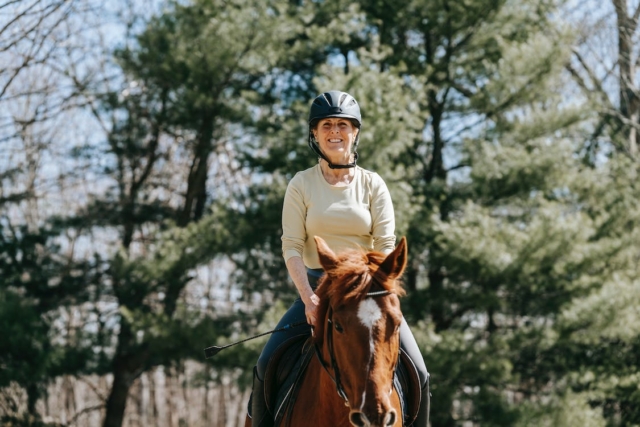Why You Should Get Your Daily Nature Fix (Even When You’re Housebound)

This article contains some affiliate links to resources you may find helpful, at no extra costs to you. All opinions are my own.
It’s such a sad, disheartening feeling: not being able to do the things you enjoy. And not just one time, but on most days.
When you’re chronically ill, the little energy you have painfully gets spend on basic self-care, urgent chores, doctor’s appointments and therapy. There’s hardly any room for the hobbies you used to love. Aside from fatigue, other limitations like chronic pain, mobility issues, brain fog and sensory overload can make it hard to pursue pleasures like making music, rollerblading, taking martial arts classes or arranging flowers.
That may sound like a first world problem – and in some ways it is – but that doesn’t mean you don’t feel unfulfilled, a little empty inside, or even robbed of your beloved activities by your chronic illness. You miss the joy and relaxation your hobbies bring you, you miss that part of yourself, that feeling of coming alive.
How can you still have some hobbies when you’re seriously sick?
There’s no one-size-fits-all answer to that question, but here are 4 strategies to help you pick up an old or new hobby again.
Chances are, you spend most of the times you feel relatively ok on things you have to do, like making meals, going to doctors appointments or paying bills. But you deserve to save some energy for an activity you enjoy, even if it’s only for a moment.
Because engaging in fun activities when you’re sick isn’t a luxury – it actually affects your overall wellbeing. Hobbies are a great way to relax and release stress, express your feelings in a healthy way and boost your mood. Studies confirm that regularly making time for your hobby supports your mental health.
What’s more, a growing body of research finds that play is not just crucial for children, but has unique benefits for adults too. Forgetting about your worries for a while and having fun with self-directed leisure activities can trigger the release of endorphins, boost your brain power, stimulate your creativity and problem-solving skills, and strengthen your relationships.
If you’d love to prioritize fun despite your limited energy, you can even work your hobbies into your action plan for recovery. Depending on your health and interests, you could rebuild your attention span by getting back into reading, boost your coordination and fitness with simple (seated) ball games or improve your diet by taking up healthy baking.

Let’s take a closer look: What are your biggest obstacles to taking up your hobbies again? And what could you do to overcome them? Not every tip will work for every body and situation, but here are some helpful things to consider.
If you can’t keep up with the usual frequency of your hobby, would it be possible to scale back to once a week, fortnight or month? This might not work for organized activities, but it may be an option for private lessons or less structured activities like poker nights and cooking clubs with friends.
When the duration of an activity is a problem for you, can you do your hobby in shorter sessions? You could practice just one song on the piano, paint a postcard-sized picture instead of a wall-filling painting, or go for a gentle bike ride around the block.
Is there a way to enjoy your hobby that requires less energy? Think of using a golf cart instead of walking, setting up your craft supplies the night before so you can start immediately when you feel well enough, or leave the kneeding of the cookie dough up to your KitchenAid.
When your fluctuating health makes it hard to keep up commitments, would it be an option to only leisurely train without joining scheduled competitions? Maybe your bowling team, karate sensei or drama club don’t mind that you just come whenever you can, and aren’t able to join tournaments or perform in shows.
During your hobby time, does it help to have breaks? And depending on the activity you love, perhaps you can alternate between physically and mentally demanding tasks to keep your energy level up. For example, switch between reading instructions and meticulously measuring woodwork or fabric, and the actual carpeting, cutting and sowing.
Not being able to move around freely can stop you from picking up your hobbies again. One important question to ask yourself is, do you have to be on location to perform you hobby, like with horseback riding or swimming? And if so, is there anything you could do to make it easier to get there, get around and get back?
Could you also do a modified version of your hobby at home? Sure, you miss the social aspect and tailored instructions, but you can follow illness-proof online exercises classes, take up painting by numbers, learn a new language with Duolingo or start an indoor herb garden, all from the comfort of your living room.
If you struggle with stiffness, an aching back or weak legs, could you shift positions during your hobby time? I’ve learnt over the years that a surprising number of activities can be done (partly) seated instead of standing. From ‘dancing’ on your bar stool and prepping food at the kitchen table to throwing, catching and dribbling a ball sitting on the garden bench, there are creative ways to work around your mobility problems – at least for a moment.

Do you worry about possible health risks when performing your hobby? Pacing your energy, combined with the tips above, can hopefully help you prevent a flare-up or post-exertional malaise after the activity, but what if you’re afraid you might hurt yourself in different ways?
If you have a condition that could cause acute problems during fun activities, like diabetes, asthma and epilepsy, it’s helpful to have a plan in place. Make sure you bring (emergency) medication, know who to call or how to act if attacks should happen. Consider whether you’d feel better doing your hobby with others instead of on your own, so there’s someone around to help in case you suddenly get serious symptoms.
When you’re concerned about getting (another) heart attack during sports activities, see if there is a rehabilitation program in your area that allows you to work out under medical supervision. For other chronic illnesses, you could explore inclusive sports programs or training groups led by physical therapists.
Depending on your specific safety concerns, you’ll want to mind slippery surfaces, visibility at night and weather influences when enjoying outdoor activities. Also time your hobby wisely if you take medication that could affect your alertness, reaction times, coordination and (fine) motor skills – you don’t want to end up with bumps, bruises or cuts from sharp objects.
“Hobbies are great distractions from the worries and troubles that plague daily living.” – Bill Malone
There’s just one important caveat to modifying your old hobbies around your current limitations: It might sting that you can’t do your hobbies like you did before.
You might hate being around horses without having that freeing feeling of riding at full gallop. You could experience real FOMO when watching your team play from the sideline. It’s totally normal to feel sad about only being able to bob your head to the beat when you really want to dance your heart out.
If doing a modified version of your beloved activity brings you more heartache than joy, then you may want to find a new hobby that’s more fitting for your current situation.

No matter how much you want it or how hard you try, sometimes you just cannot pick up your old hobbies. At least for now, it’s virtually impossible to go rowing regularly, run 10K or play in a band when you spend most of your waking hours sick at home.
Of course that doesn’t mean you can’t pick up a new, more accessible and illness-friendly hobby. There are plenty of fun activities you could do at your own pace from the comfort of your home – or even your bed – from hand lettering, learning about ancient Rome and collecting baseball cards to singing and doing jigsaw puzzles.
But it’s not always easy finding an activity that you love and that’s actually doable for your body and brain, on a somewhat regular basis.
If you don’t know which new hobby you might like now you’re sick, you could start by exploring your play personality.
According to Stuart Brown, researcher and author of ‘Play. How it shapes the brain, opens the imagination, and invigorates the soul’, there are 8 different kinds of play personalities:
Once you’ve identified your dominant play type(s), you can explore new hobbies that might bring you that same kind of fun.
Let’s say you have a natural preference for competition. You may not be able to play tennis matches or do mud races any more, but perhaps you can channel that competitive spirit into a board game competition, online chess or table football? If you love exploring but can hardly leave home right now, maybe you can go on an armchair journey with travel memoirs, watch documentaries from around the world or learn the basics of a new language. And when you’ve always loved exercising yet struggle with limited mobility now, see if you could explore gentle movement, like restorative yoga, chair exercises or working on your walking fitness.
With a little creativity (ok, sometimes a lot), you can find a new, doable hobby for every play personality.

The joy that hobbies bring doesn’t just come from the activity itself, but also from your playful attitude during that leisure time. Playfulness is a state of mind in which you let go of constraints and make room for light-heartedness, excitement and child-like curiosity. And the great thing is, you can express that sense of playfulness in more ways than just enjoying hobbies.
Even when you’re sick and struggling, you can bring some playfulness back into your life by looking for the humor in the situation whenever you can. Ironically, there’s a fine line between tragedy and comedy, and sometimes when nothing is going right, laughing through the pain can make all the difference.
And what better way to cultivate a spirit of play by unleashing your inner kid? Build a blanket fort to rest in, sing and dance like no one’s watching, draw rainbows, whatever makes you smile inside. Turn boring chores into a game and use your imagination to explore new ideas.
Finally, infuse your week with small bursts of fun. When you’re seriously sick, there’s a lot less spontaneous joy in your life. So make an effort to add some laughter to your life. Read a funny graphic novel, stream a new standup comedy show once a month or play hilarious games. You could even set up a special app group with likeminded friends to share jokes or funny memes to brighten up your days.
Even if you can’t enjoy your hobbies when you’re sick, you can sprinkle simple pleasures into your days, like listening to one new song, reading one short poem or looking for a new recipe to make on better days.
Of course there will be days when you have too much pain and too little energy to do things you enjoy. But hopefully with these strategies, you can still have moments when you experience the joy and relaxation that hobbies – old or new – bring you.
What helps you to still enjoy hobbies when you’re sick?
Learn more about the healing powers of hobbies in these articles on Art Therapy and Bibliotherapy, or download my free Bored and Sick Guide with 130 low-energy activities you can do at home for more inspiration.